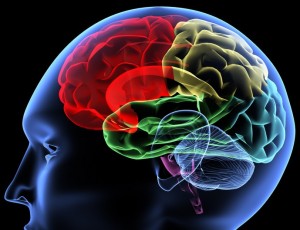 No, I don’t mean it’s literally made of plastic. But it is changeable, malleable, and able to grow — no matter what your age.
No, I don’t mean it’s literally made of plastic. But it is changeable, malleable, and able to grow — no matter what your age.
The brain is packed-full of cells called neurons, whose job is to receive and transmit information. They use chemical messengers called neurotransmitters, such as serotonin and dopamine, to carry out their job descriptions, activating some areas, and putting the breaks on others, so that we can move, eat, breathe, laugh, love, and live. So what’s this “plastic” business all about?
Plasticity is a term used to denote that the brain is changeable, malleable, and able to rewire. The primary way our brain “grows” is by creating new and complex pathways that connect different areas to one another. All of the things we learn and the events we experience throughout our lives create connections, or pathways, between brain cells. The more we do a particular activity, or the more profoundly an experience effects us, the stronger and deeper these pathways become. Only 20% of our pathways are “hard-wired”, or common between each human being. That means the vast majority of your brain is made up of pathways that are unique to you: your genetics, experiences, thoughts, and activities.
Neuroplasticity is truly a “use it or lose it” phenomenon. The more times you activate a pathway (perform an activity, think a thought, act out a behavior, etc.,) the stronger and more efficient the pathway will become, and the easier it will be to fire that pathway in the future. This is great when it comes to learning to play a musical instrument, speaking a new language, developing better coordination and sports performance, or even becoming a more positive thinker.
But there is another edge to this sword. Some experiences are so strong that they can create a pathway almost instantly. Experiencing extreme pain, for example, can create a pathway that can effectively exist long after what actually caused the pain is gone. This partially explains why some people suffer from pain disorders such as Complex Regional Pain Syndrome (CRPS) or Chronic Pain Syndrome (CPS). A traumatic event can also “singe” a pathway into our brain, and can lead to anxiety or panic that can later make a person physiologically react even when they are not actually in danger, a condition known as Post Traumatic Stress Disorder (PTSD.)
So, now you know your brain is plastic. But can you really rewire it? Absolutely. That’s what functional neurology is all about. The key is to use plasticity to your advantage. Stay tuned to future blog posts to learn more.
Great explanation in this post, Doctor Natalie. Made me think of the saying “watch your thoughts, they become words; watch your words, they become actions; watch your actions, they become habits; watch your habits, they become character; watch your character, it becomes your destiny.” Really goes to show we are what we think and do, and need to be careful what we feed our brains.
Love your headlines, by the way! They always scream “READ ME!” 🙂
Thanks on creating one of the most stylish blogs I have come across in a long time! It’s truly incredible how much you are able to take away from some thing simply because of how aesthetically gorgeous it is. Youve created a fantastic be site fantastic graphics , structure. site!
My blog is on Low carb diet plan.
Excellent post. You must continue to offer excellent resources and content like you have been offering. I will most likely stop by again in the future.
My site is about Weight loss recipes.
Your artilce perfectly shows what I needed to know, thanks!
Hey can I get you designers contact info? This is an awesome skin.
Did You Know Your Brain Is Plastic? Great goods from you, man. I’ve understand your stuff previous to and you’re just extremely fantastic. I really like what you’ve acquired here, certainly like what you are stating and the way in which you say it. You make it entertaining and you still care for to keep it smart. I cant wait to read far more Did You Know Your Brain Is Plastic? again from you. Thanks For Share .
Very good program. Thanks!
Thanks! Go to StudioPress.com Those guys are amazing!!
I like Your Article about Did You Know Your Brain Is Plastic? Perfect just what I was searching for! .
Thanks – Enjoyed this update, how can I make is so that I receive an email sent to me whenever you make a new update?
I agree with your Did You Know Your Brain Is Plastic?, fantastic post.
I found your blog on bing. I think it’s pretty nice.
yourtoplife.com is what i’m looking for !!